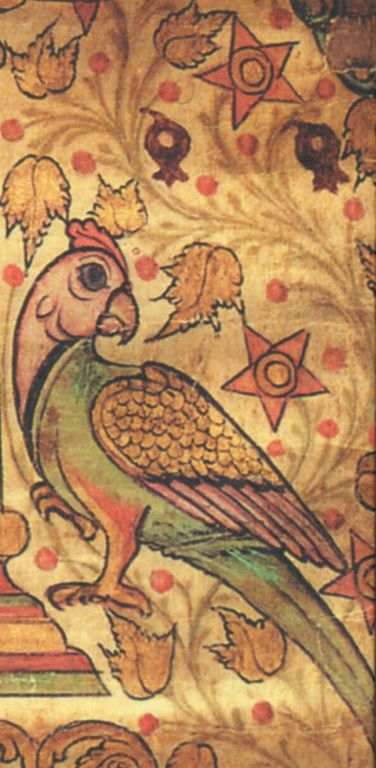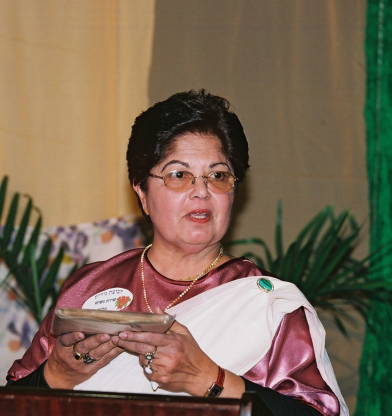1977
21. Great God Who Has Fed Us
Rivka Wadekeotam. Recorded by Shirley Isenberg and Edith Gerson-Kiwi, Jerusalem, February 16, 1977; IV-137.
Ūņu tanna sādhakaně tān ādariccavarě vāstuka veņě
Puṣṭiyil nāṃ śeṣiccūtu aruḷappāḍu tulyaṃ polě
Ūņu tanna sādhakaně tān ādariccavarě vāstuka veņě
Puṣṭiyil nāṃ śeṣiccūtĕ aruḷappāḍu tulyaṃ polě
1. O Great God Who has fed us, in Whom we trust, be blessed.
We’ve eaten and are satisfied with the extra, as You decree.
O Great God Who has fed us, in Whom we trust, be blessed.
We’ve eaten and are satisfied with the extra, as You decree.2. The One who feeds the whole world, oh may He feed us too.
We’ve eaten of your food, O King, and drunk the wine from You.
By singing and by praising, we bless Your holy Name.
Speaking and replying, “Sadhakan is the Holy One."3. By songs and celebration, we praise Lord Tamburan.
For He gave to the faithful our dear sweet-scented land.
The tasty food was carried, and with pleasure was bestowed.
The mercy of the faithful Lord upon us overflowed.4. By Your kindness and Your favor, let Israel remain.
And the glory of Siyon will transcend all limits of fame.
May Ben David Your servant now come to redeem.
We think of him with every breath; Mashiya is the one.5. Please build and give us the mikdash; fulfill us in Siyon.
There we will go up singing, singing songs of praise.
With blessings and excellence, O Holy Father, rule.
As wine overflows the cup, God's blessings multiply.
Śuddhipěṭṭa vāvāyě vāḻuvuṃ menmayuṃ varutteņě (x2)
Sādhakandě vāḻuvu polě yāyin kaviyunna kosummel (x2)
6. With blessings and excellence, oh Holy Father, rule. (x2)
As wine overflows the cup, God's blessings multiply. (x2)
This is a Malayalam translation of the popular Hebrew piyyut Tzur mishelo ’akhalnu (“Our Rock, Whose Food We Have Eaten” in ’Areshet 1980, 305), which is sung at the conclusion of festive meals for Shabbat, holidays, and special occasions. It is found in only one of the notebooks, originating in Chendamangalam, and Rivka Wadekeotam from that Jewish community performed it from memory in Jerusalem in 1977. Born in 1902, she died just a few months after singing this confident and lively version for Shirley Isenberg's recording.
The Malayalam version follows the original Hebrew, with several Kerala touches. Stanza 3 renders the Hebrew “good and pleasant land” as a land fragrant with the scent of musk (kasturi). In the Malayalam recording, Rivka Wadekeotam repeats the final stanza, changing to a different melody. This is a common practice among Kerala Jews, who may repeat the final stanza of this Hebrew song by using a melody associated with a particular festive occasion—e.g. a wedding melody to celebrate the news of an engagement or a brit milah melody to celebrate the news of a birth or pregnancy (Johnson 1995, 66). Here the singer’s repetition may be associated with the festival of Purim, as she sings it to the same tune as an early twentieth century Paradesi Hebrew composition, “Purim haYom, Purim Lanu” (’Areshet 1980, 427), by Isaac E. Hallegua (1892–1941).






